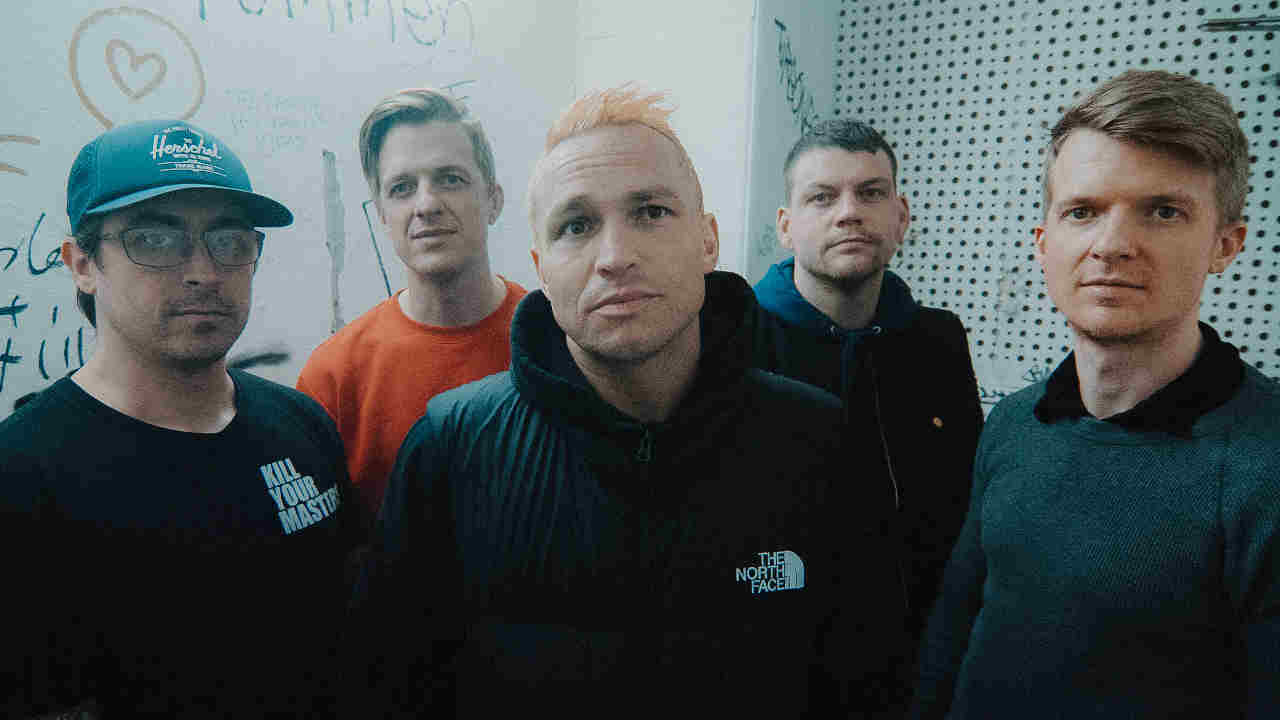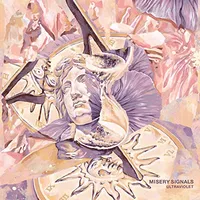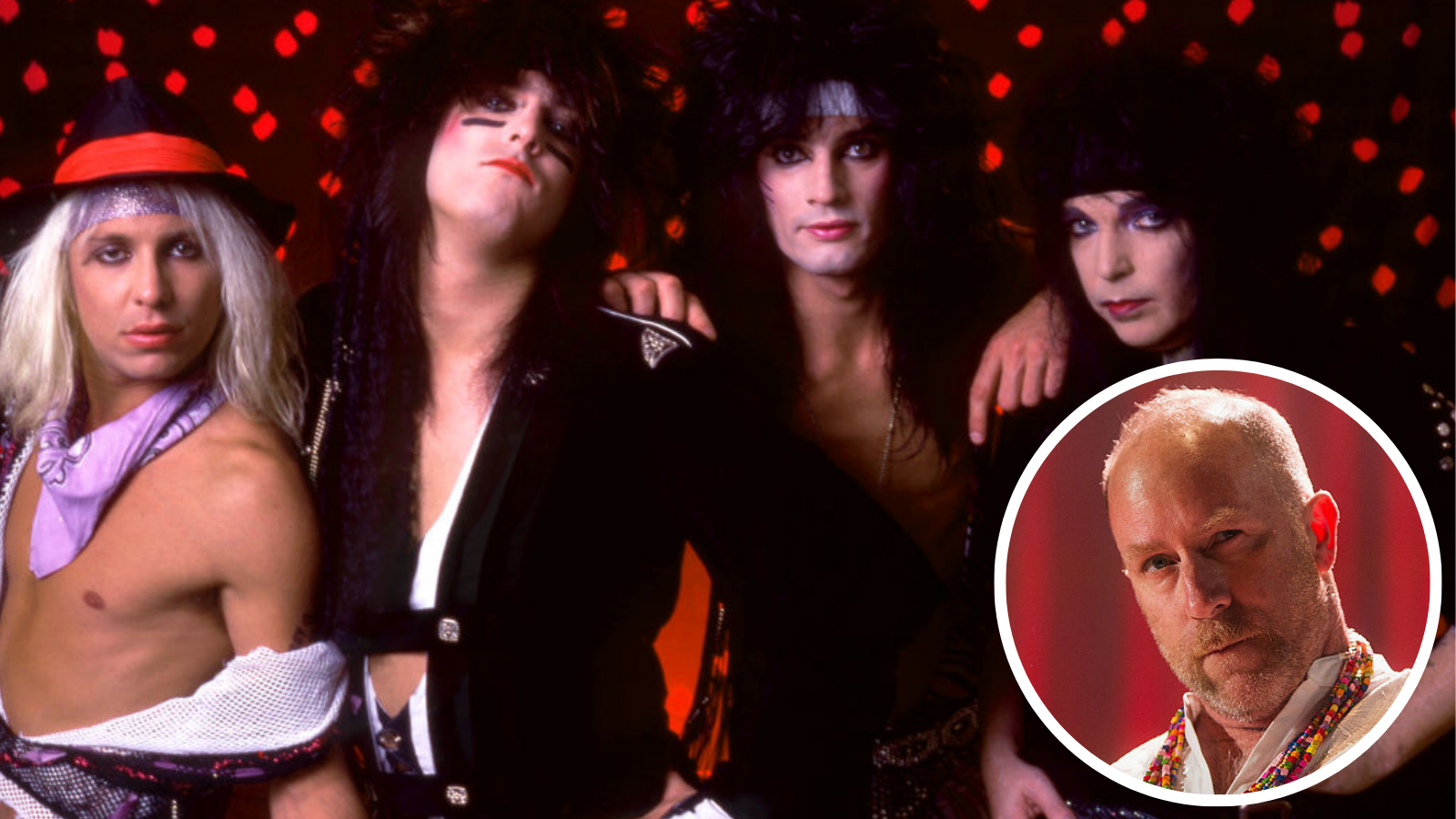The Top 10 best proto-metalcore records
Misery Signals pick the 10 records that did more than most to shape the sound of metalcore

Select the newsletters you’d like to receive. Then, add your email to sign up.
You are now subscribed
Your newsletter sign-up was successful
Want to add more newsletters?

Every Friday
Louder
Louder’s weekly newsletter is jam-packed with the team’s personal highlights from the last seven days, including features, breaking news, reviews and tons of juicy exclusives from the world of alternative music.

Every Friday
Classic Rock
The Classic Rock newsletter is an essential read for the discerning rock fan. Every week we bring you the news, reviews and the very best features and interviews from our extensive archive. Written by rock fans for rock fans.

Every Friday
Metal Hammer
For the last four decades Metal Hammer has been the world’s greatest metal magazine. Created by metalheads for metalheads, ‘Hammer takes you behind the scenes, closer to the action, and nearer to the bands that you love the most.

Every Friday
Prog
The Prog newsletter brings you the very best of Prog Magazine and our website, every Friday. We'll deliver you the very latest news from the Prog universe, informative features and archive material from Prog’s impressive vault.
Misery Signals know a few things about metalcore. The North American band’s 2004 debut album Of Malice was a landmark in the emerging 00s scene, influencing a host of bands that followed. MS’ new album, Ultraviolet, is more than just their first record in seven years – it’s the first to feature their original line-up since Of Malice. To mark this, we got the five-piece to talk us through the proto-metalcore albums that shaped both them and the entire metalcore scene.

Sepultura - Chaos A.D.(1993)
Stu Ross (guitarist): “Chaos A.D. is a fast and heavy, politically charged album. When I was first exposed to this record I was a young teenage punk. This album managed to transcend heavy metal with its energy and heaviness. As a young, ardent fan of punk rock, it appealed to me in a way that most heavy metal records of the early 90’s could not. It’s a heavy metal record with punk style and ethos. Chaos A.D. has gone on to greatly influence countless hardcore and metalcore bands to this day.”
Vision Of Disorder - Imprint (1998)
Stu Ross: “V.O.D. was one of the first ‘metalcore’ bands I ever got into. Although they cut their teeth in the hardcore scene, their sound was unique among their peers. They pushed the boundaries of the genre with their progressive style of metallic hardcore. Imprint has a lot of raw aggression that is accompanied by melody and groove that would later greatly influence my song writing and Misery Signals as a whole.’
Turmoil - Anchor (1997)
Ryan Morgan (guitarist): “Turmoil is a wildly underrated band. They were writing some of the sickest, ugliest hardcore of the time. Anchor is technically an EP, but the CD version I owned included songs compiled from earlier in the band's career. It also previewed two songs that would reappear on their better recorded follow up The Process Of... in 99. If you were one of the many folks that slept on Turmoil, it's not too late to go back to these records and realize they were capable of tightness that their contemporaries couldn't fuck with.”
Candiria - Beyond Reasonable Doubt (1997)
Ryan Morgan: “I love Candiria's willingness to mash other genres into their hardcore. Metal was the main additive, but also jazz and hip hop and atmospherics. This album has undeniable grooviness, and it gives you polyrhythms as complex as anything Meshuggah is capable of. Candiria's vocals were so aggressive I remember hearing sounds that I was scared of. These guys were pioneers on multiple levels.”
Deadguy - Fixation on a Coworker (1995)
Kyle Johnson (bassist): “I recall first hearing this band on an old Victory Records sampler called Victory Style in high school - Pins And Needles was the track that appeared on the comp. There were a lot of great bands on these early comps but the thing that stood out most to me about Deadguy was how angry their sound was. It really resonated with me as an angsty 15 year old teenager. That paired with the chaotic nature of the music was like nothing I'd ever heard. Definitely a game changer.
Cave In - Beyond Hypothermia (1998)
Kyle Johnson: “What can I say about this album that actually gives it the credit it deserves? Mid/Late-90s Boston was an anomaly. The amount of incredible music that was coming out of the city in that era still boggles the mind. Cave In's Beyond Hypothermia, in my opinion, was the best of a lot of influential heavy music. I'll never forget listening to the Chameleon/Crossbearer 7" on my girlfriends fisher price record player, at 17 years old, realizing that my life had just been changed forever. And once the album dropped, which actually was just a compilation of material the band had released on a variety of splits/comps, it wouldn't leave my CD player for many months. I think I can confidently say, as far as early metalcore goes, it's the single most important record in regards to the influence it has had on Misery Signals in the beginning, and still to this day.”
Metallica - And Justice For All (1988)
Branden Morgan (drummer): “Metallica is the reason I play music. I remember the first time I heard Metallica. Ryan was listening to Ride The Lightning on cassette in his bedroom and I must've been like seven or eight years old. I walked into his room intrigued and scared of the raw power, aggression, and dark imagery of For Whom The Bell Tolls. It was the heaviest thing I had ever heard to date. So if I were to choose any record it would be …And Justice For All. The songwriting was outside of conventional yet still cohesive. Every song is packed to the gills with riffs, transitions and epically long, multi-movement sections with an almost symphonic feel. Not to mention the revolutionary middle section of One where Lars pushes the envelope by matching his double kick with James' fast palm muting making an insanely tight and aggressive sound.”
Sign up below to get the latest from Metal Hammer, plus exclusive special offers, direct to your inbox!
Meshuggah - Chaosphere (1998)
Branden Morgan: “Meshuggah is a game changer for the metalcore genre. Again I have to credit Ryan for this one. He brought home the New Millennium Cyanide Christ single on cassette. The depth of rhythmic complexity, heaviness and groove was something so new and unexplored. The only other band I knew that was using seven-string guitars at the time was Fear Factory, which was in the rotation already. So when I discovered Meshuggah I hadn't heard anything like it. It was relentless, so tight, so complex. Jens vocals were rapid fire and pissed. The genius of this band is that they manage to play incredibly complex rhythms while maintaining a consistent groove throughout. This was in 1998! Often imitated, never matched, Meshuggah have undeniably revolutionized metalcore and influenced Misery Signals.”
Poison The Well – The Opposite of December (1999)
Jesse Zaraska (vocalist): “If asked to provide one album as an example of metalcore, I would likely offer The Opposite Of December. The dynamic guitar work, the poetic lyrics, the big double kick breakdowns, and Jeff Moreira’s vocal style, all important elements in their sound, later became strong characteristics of the metalcore genre. This was a very important record for me personally as much of Jeff’s vocal work was extremely influential on my development as a singer. I cannot overemphasize just how important the talking parts on this record are to the development of metalcore. Jeff’s vocal choices largely shaped how I wrote the early Compromise and Misery Signals material. The desperation that Jeff is able to convey on that record is something that I tried very hard to emulate when I started out and something I still look to. The balance of singing, talking, and screaming that is employed on this album also came to define the genre. Growing up in a small Canadian city and not being as exposed to American metalcore as my American bandmates were, this was also a super important release due to it being a record that was actually readily available in Canada. This is a monumental release.”
Zao – Where Blood and Fire Bring Rest (1998)
Jesse Zaraska: “Guitars stabbing and squealing, poetic vocals sung as if someone is on fire, breakdowns, and freakout Christian screamalongs - this one has it all. [Late Compromise guitarist] Jordan Wodehouse was the first person to play Zao for me, and I remember thinking that it sounded frightening. I remember also that despite Wodehouse’s assertion that we were listening to hardcore, I felt that it was very much heavy metal. Zao is one of the best examples of early metalcore, and their influence on the genre is undeniable. The guitar work, the high throaty style of the vocals, and the band aesthetics are all pieces that would have great influence on bands down the road. Daniel Weyandt’s lyrics were personal, real, and scary in a way that most lyricists can only attempt to achieve. Alongside Daniel’s vocal testament, you had a band that not only changed things sonically but aesthetically. I mean, how many kids have blown out their knees in attempt to jump like Russ Cogdell?”
Misery Signals’ new album Ultraviolet is released on August 8 and available for pre-order

